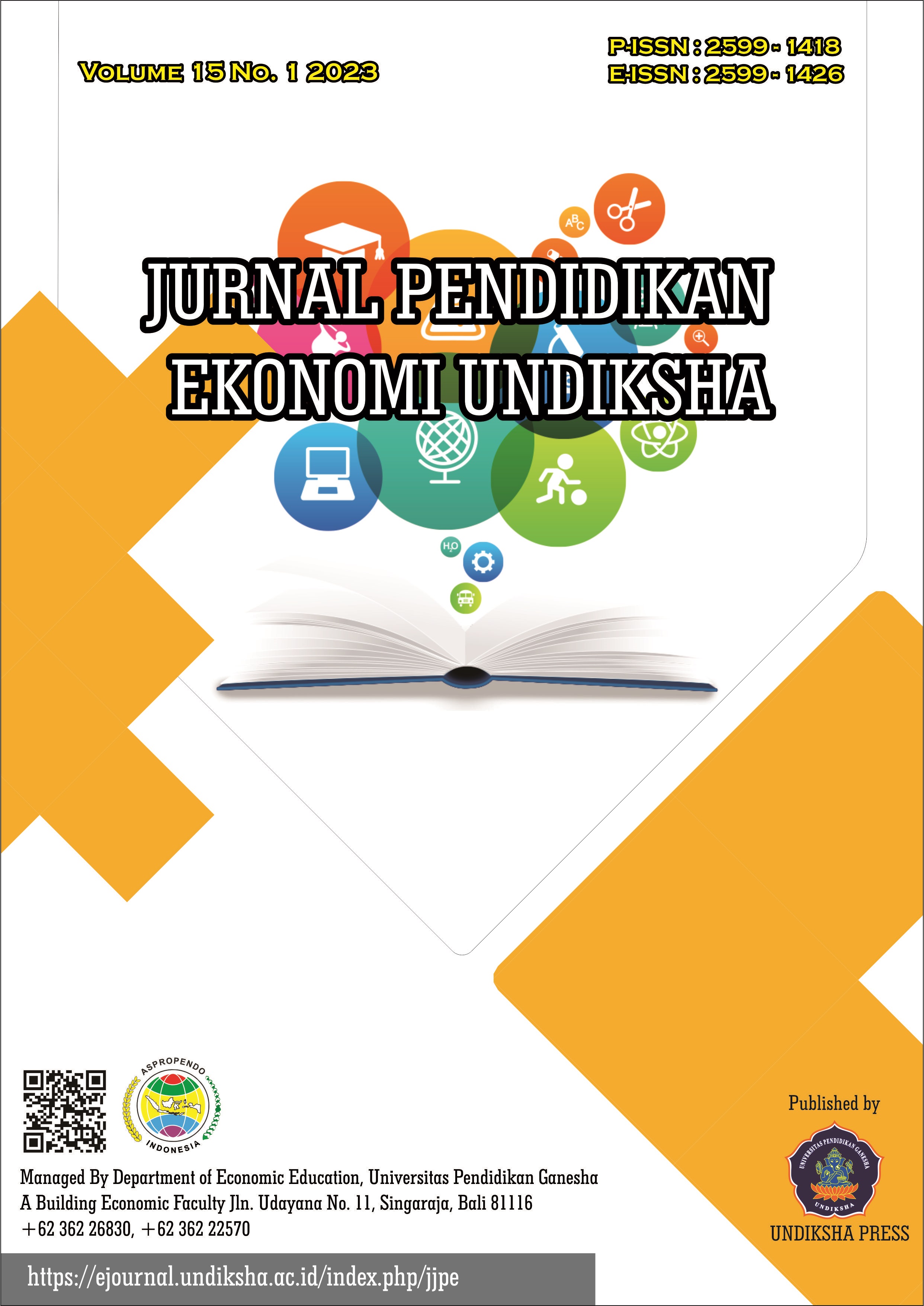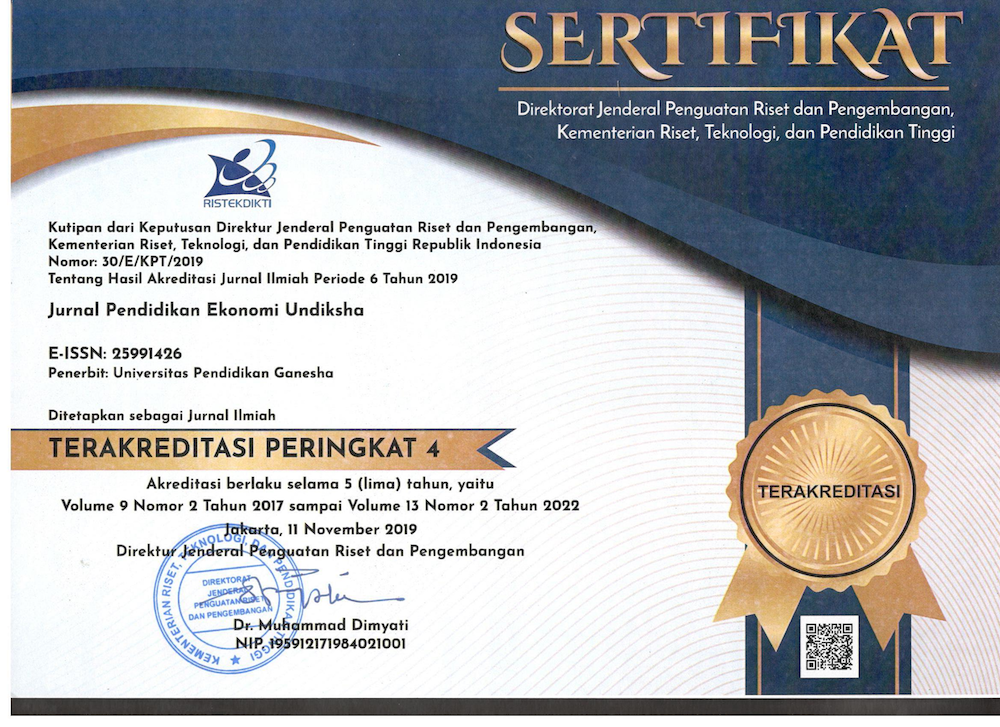Peran Digital Freelancer Marketplace dan Media Sosial Terhadap Perkembangan Gig Economy Worker
DOI:
https://doi.org/10.23887/jjpe.v15i1.61469Keywords:
Gig Economy Worker, Digital Freelancer Marketplaces, Social Security and Social MediaAbstract
The Gig Economy Worker phenomenon is becoming an option for Generation Z to work; the problems that occur are the lack of attention from the Government in providing good guarantees for Gig Economy Workers, so it is necessary to conduct research that has the objective of How to Form Government Attention in Providing Social Security and Protection for Gig Economy Worker, What is the Role of the Digital Freelancer Marketplace in the Development of the Gig Economy Worker; What is the Role of Social Media on the Development of the Gig Economy Worker. The methodology in this study is that this type of research is analytic observational using a case-control or case-control research design. The results of this study show that there is still a need for more government attention because they do not provide social security and legal protection, and the results of the development of the Gig Economy, Workers are heavily influenced by the Digital Freelancer Marketplace and social media. This research has good implications for the development of science and illustrates that Gig Economy Workers are entitled to social security and protection where Gig Economy Workers work.
References
Aitken, P. (2017). How Relevant is Social Media to Freelancers? https://www.relevance.com/how- relevant-is-socialmedia-to- freelancers/
Anggrian, W. M., & Sumarlin, A. W. (2016). Pengaruh komitmen tenaga kerja lepas terhadap motivasinya dalam perusahaan keluarga di sektor informal. Jurnal Manajemen Teknologi, 15(2), 139–153.
Anwar, M. A., & Graham, M. (2021). Between a rock and a hard place: Freedom, flexibility, precarity and vulnerability in the gig economy in Africa. Competition and Change, 25(2), 237–258.
https://doi.org/10.1177/10245294 20914473
Arfianti, U., & Reswanda, R. (2020). Break Even Point Analysis As A Basic of Profit Planning In Handal Insan Sentosa Batik Business. Quantitative Economics and Management Studies, 1(3), 187–193.
Arikunto, S. (2006). Prosedur Penelitian Suatu Pendekatan Praktik.
Aristi, N. M. (2021). Peran Digital Freelance Marketplace dan Media Sosial untuk Jual Beli Jasa Profesional Lepas dalam Gig Economy.
Aristi, N. M., & Pratama, A. R. (2021). Exploring Familiarity and Participation in Online Gig Economy Among Indonesians. IOP Conference Series: Materials Science and Engineering, 1077(1), 012066.
https://doi.org/10.1088/1757- 899x/1077/1/012066
Bates, O., Lord, C., Alter, H., & Kirman, B. (2020). Let‘s start talking the walk: Capturing and reflecting on our limits when working with gig economy workers. In Proceedings of the 7th International Conference on ICT for Sustainability, 227–235.
Downloads
Published
How to Cite
Issue
Section
License
Copyright (c) 2023 Jurnal Pendidikan Ekonomi Undiksha

This work is licensed under a Creative Commons Attribution-ShareAlike 4.0 International License.





